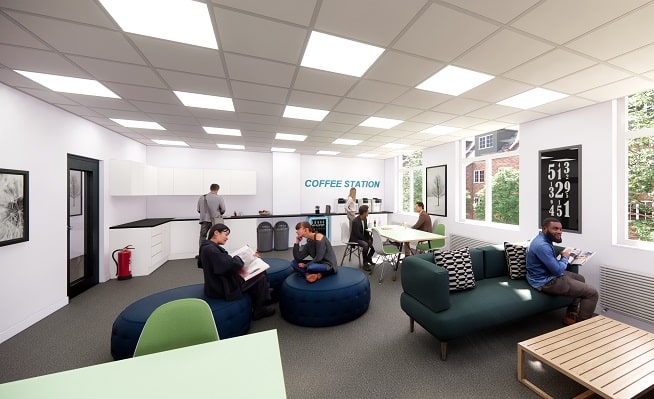The office space – enough to accommodate around 3,300 workers or the equivalent of 2.5 professional football pitches – has been lost due to to Permitted Development Rights (PDR).
PDR enables developers to bypass normal planning permission to convert commercial premises into residential developments.
The initiative was introduced by David Cameron’s government and was aimed at preventing the blight of empty retail units on UK high streets.
But business leaders and Tunbridge Wells Borough Council [TWBC] say PDR has led to swathes of commercial space being converted into flats in the town, at a time when there is more demand than ever for office space outside of London.
Cllr Jane March, deputy leader of TWBC and head of economic development, said: “Tunbridge Wells has a huge pool of talent, a significant proportion of which formerly commuted to London.
“We believe that the number of those commuting will permanently decrease, with more working flexibly, part-time or in businesses locally.
“With the positive increase in town footfall, come new and different demands for office space. With 200,000 sq ft lost to residential, I would like to call for a refocus to steer developments towards office space.”
According to the Council’s figures, 17 per cent of retail space in and around Tunbridge Wells is currently lying vacant, and it is feared much of this could be lost to the commercial sector.
To call a halt to the practice, Cllr March has teamed up with #TWWorks, a group of local business leaders from MarkerStudy Leisure Group, Cripps PG, Dandara, Southpaw, Calvermont and AXA PPP, as well as the BID organisation Royal Tunbridge Wells Together.
The group says since Covid-19 hit, 3,000 fewer commuters have been travelling away from town for work.
They also say 5,000 companies were set up in Tunbridge Wells in the five years before 2020, but this figure is expected to soar as people choose a better work life balance and try to navigate redundancies and new ways of working by setting up independently.
Ross Feeney, CEO of Tunbridge Wells Together, said: “We will not save the high street by converting our retail space into small residential flats.
“Instead, we need to create office space which will bring more businesses to Tunbridge Wells, who in turn will fill our local shops and restaurants.
“We understand business rates are a hurdle, so we are also proactively campaigning for the exemption to be extended.”








